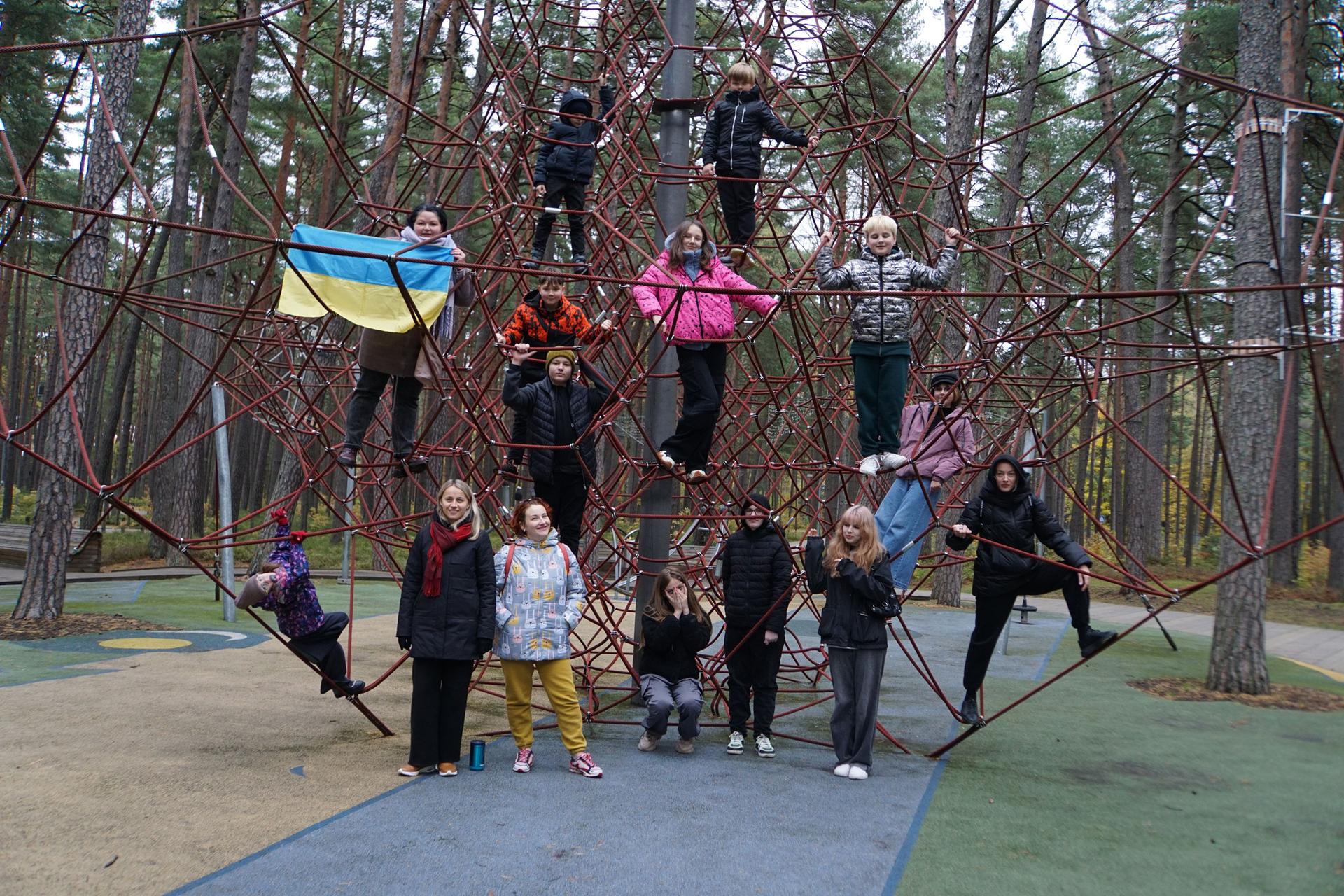Danya Synchuk and his little brother, Yehor Synchuk, are still talking about their 30-hour trip from Ukraine to Latvia.
It’s only the second time the boys have left Ukraine since Russia’s full-scale invasion.
“I think I’m going to find more friends here,” Danya said. “And it’s very cool to be here because — I’m feeling free — because you don’t think about rockets, you don’t think about basements, I don’t think about studying I can just chill out here, it’s really good,” he said.
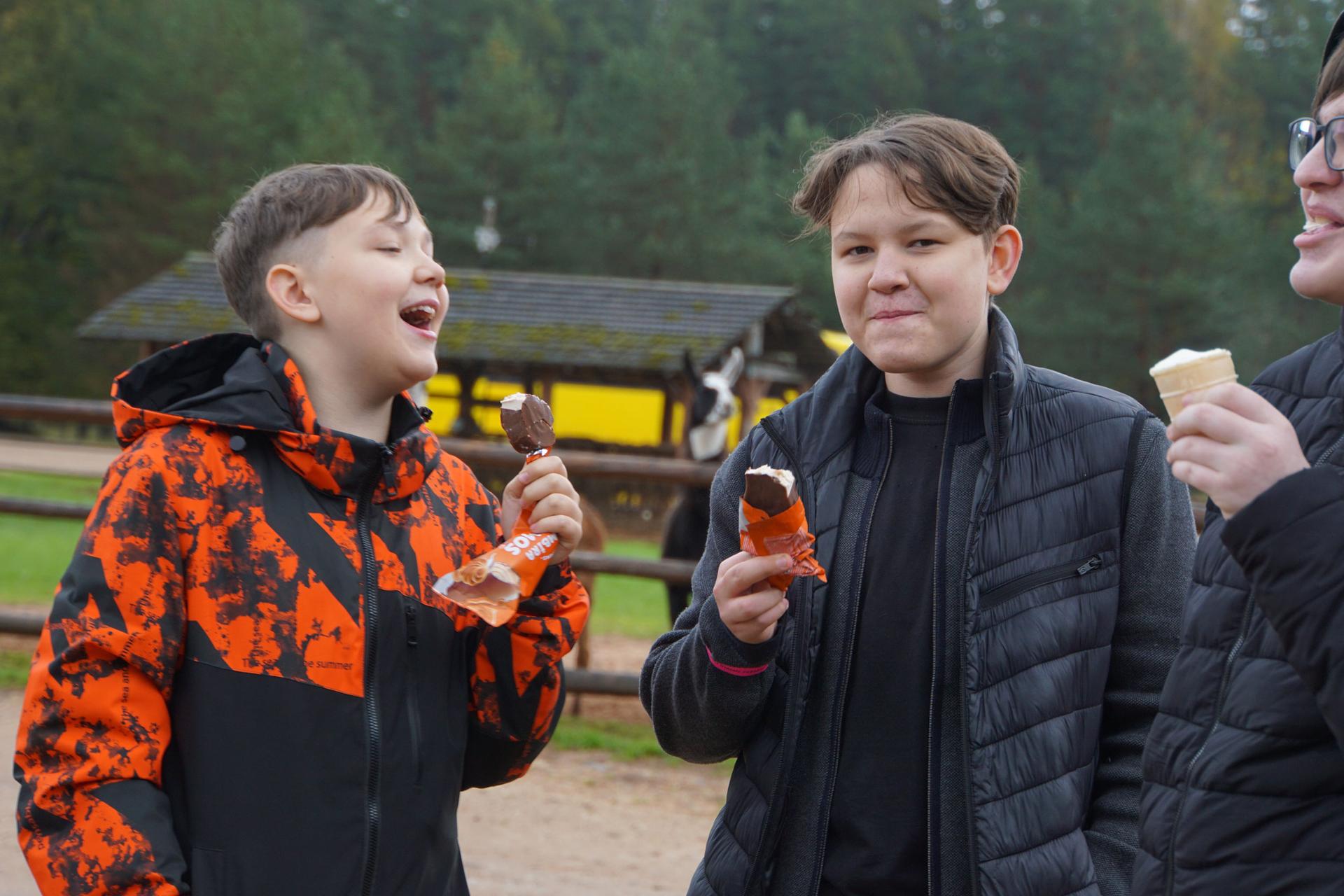
Danya said he’s also thinking less about being a cancer survivor.
The brothers have come to Riga, Latvia, to take part in a program that hosts groups of Ukrainian children who are patients at the Okhmatdyt Children’s Hospital in Kyiv, and their families, for 10 days of leisure, therapy and respite from the war.
Most of the kids are oncology patients in remission. But the program focuses less on cancer and more on overall mental health, according to Diana Klimcenko with the Children’s Hospital Foundation.
As the program’s lead organizer, Klimcenko is the first to greet families arriving after long, 30-hour bus rides — and she helps them get acclimated.
She said they’ve hosted five groups of families since Russia’s full-scale invasion of Ukraine began in February of 2022.
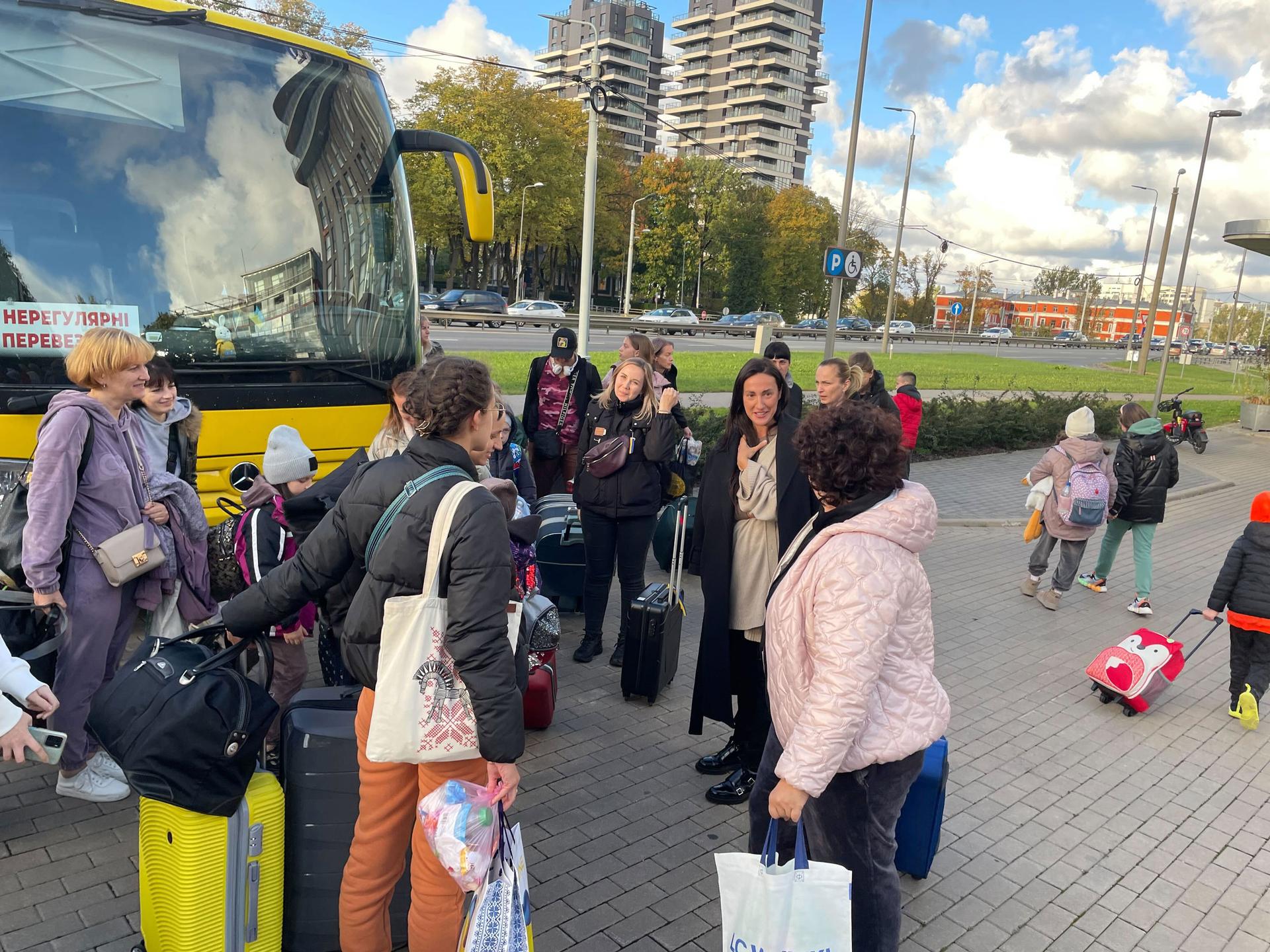
These families come from every part of Ukraine, Klimcenko said, including areas that were destroyed or were under Russian occupation.
Many of the fathers of these kids are serving in the military, and some families have lost friends and loved ones.
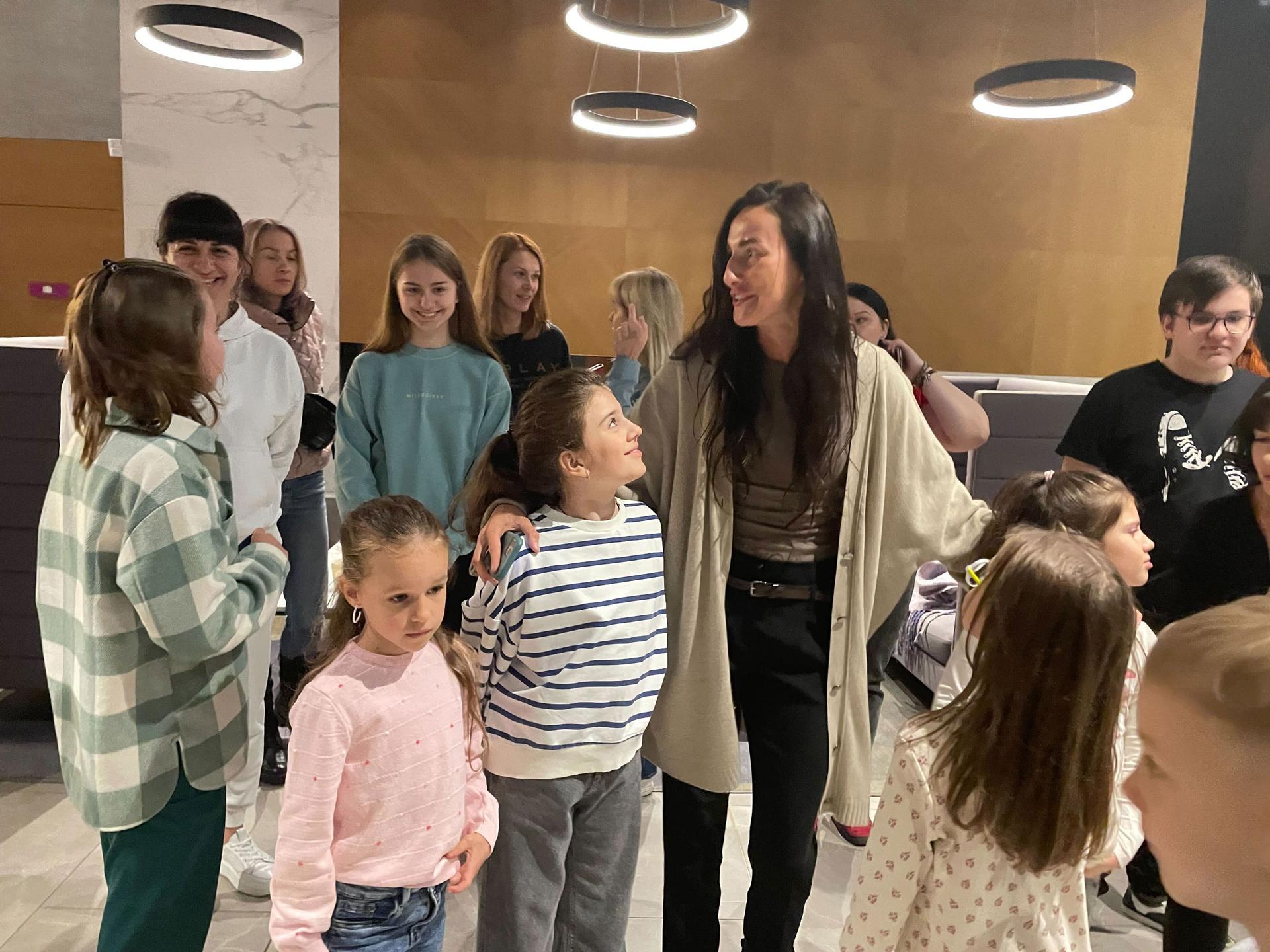
Over the course of 10 days, specialists work with every age group to provide therapy. But most of the time is devoted to travel and fun activities. They go to the pool, to museums and take walking tours around the city.
On their second day in Latvia, the families visited a petting zoo. For most of the younger kids, the baby goats were fan favorites. They pet them, fed them and asked their moms if they could bring them back to Ukraine.
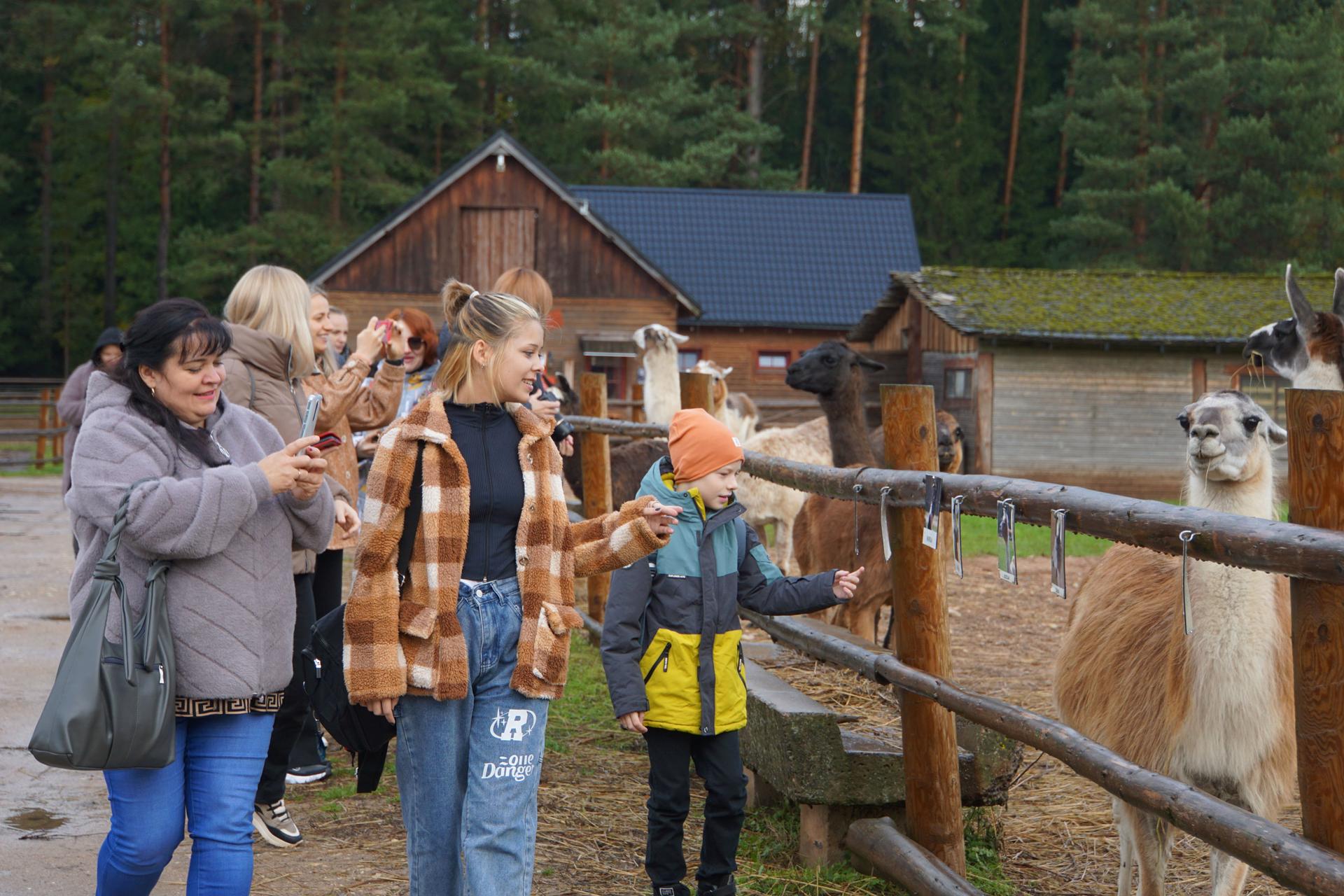
Maruta Šnore, one of the volunteers who works with Ukrainian families, said this is the best type of psychological support.
“Kids feel happy when they can feed animals, touch them, can contact them, and sometimes, I think it is more important than working with psychologists,” Šnore said.
But some of the older kids were less enthusiastic about petting the goats. Many were thinking about family back home, and how different life is for people in Latvia.
Danya’s father was fighting on the front lines in eastern Ukraine. He is now back home, but the war has taken a toll on him, Danya said.
“After the war, he’s become more aggressive,” Danya explained. “I can’t blame him, it’s war. But he’s still our dad, we love him just the way he is.”
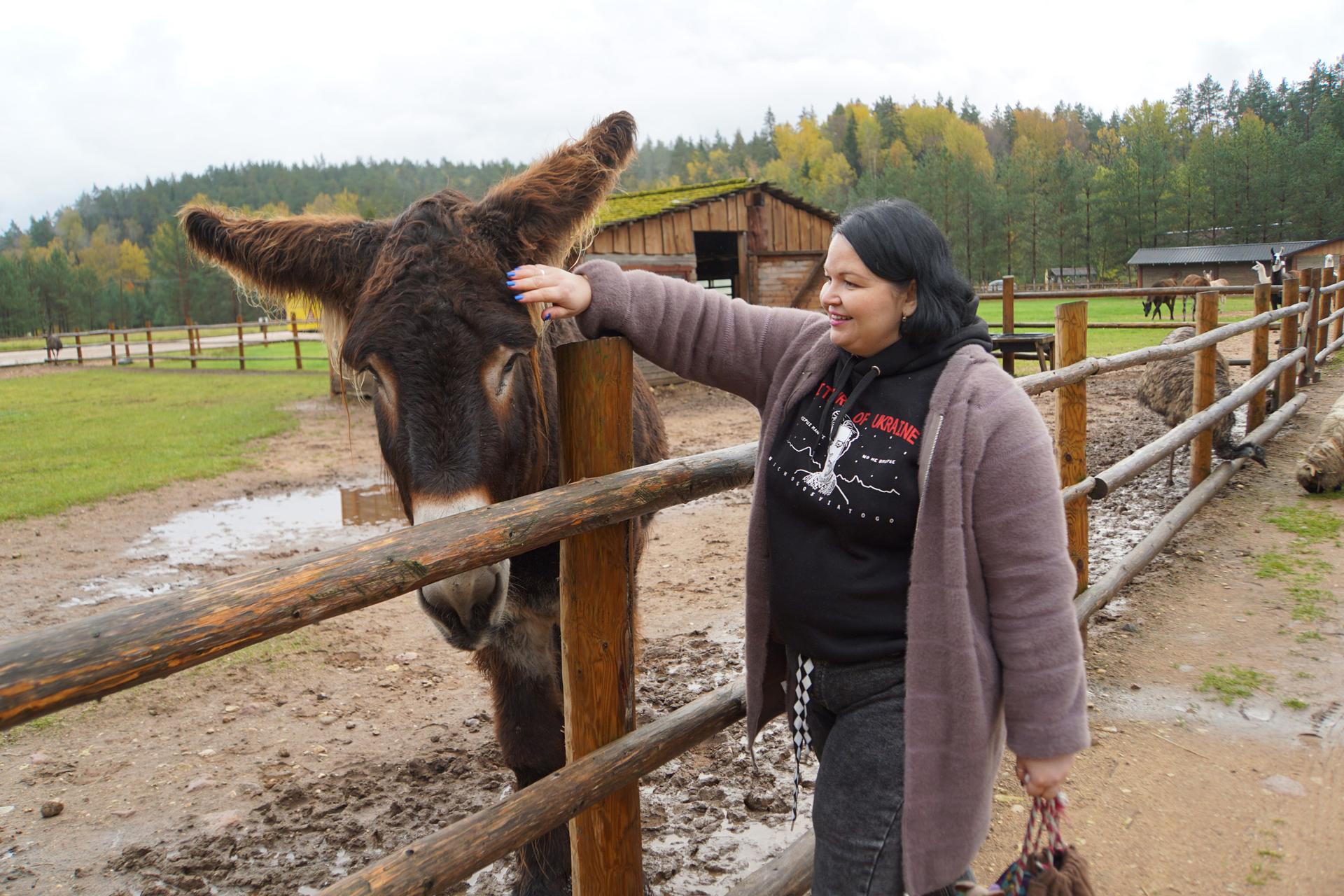
Kristina Synchuk, Danya and Yehor’s mother, said that most of the men in her husband’s unit died, and her husband is really struggling now.
“He sleeps on the floor, he can’t sleep on the bed,” she said. “He hasn’t unpacked his bag … Physically, he’s with us, but psychologically, he’s somewhere else.”
“He didn’t really come back from the war.”
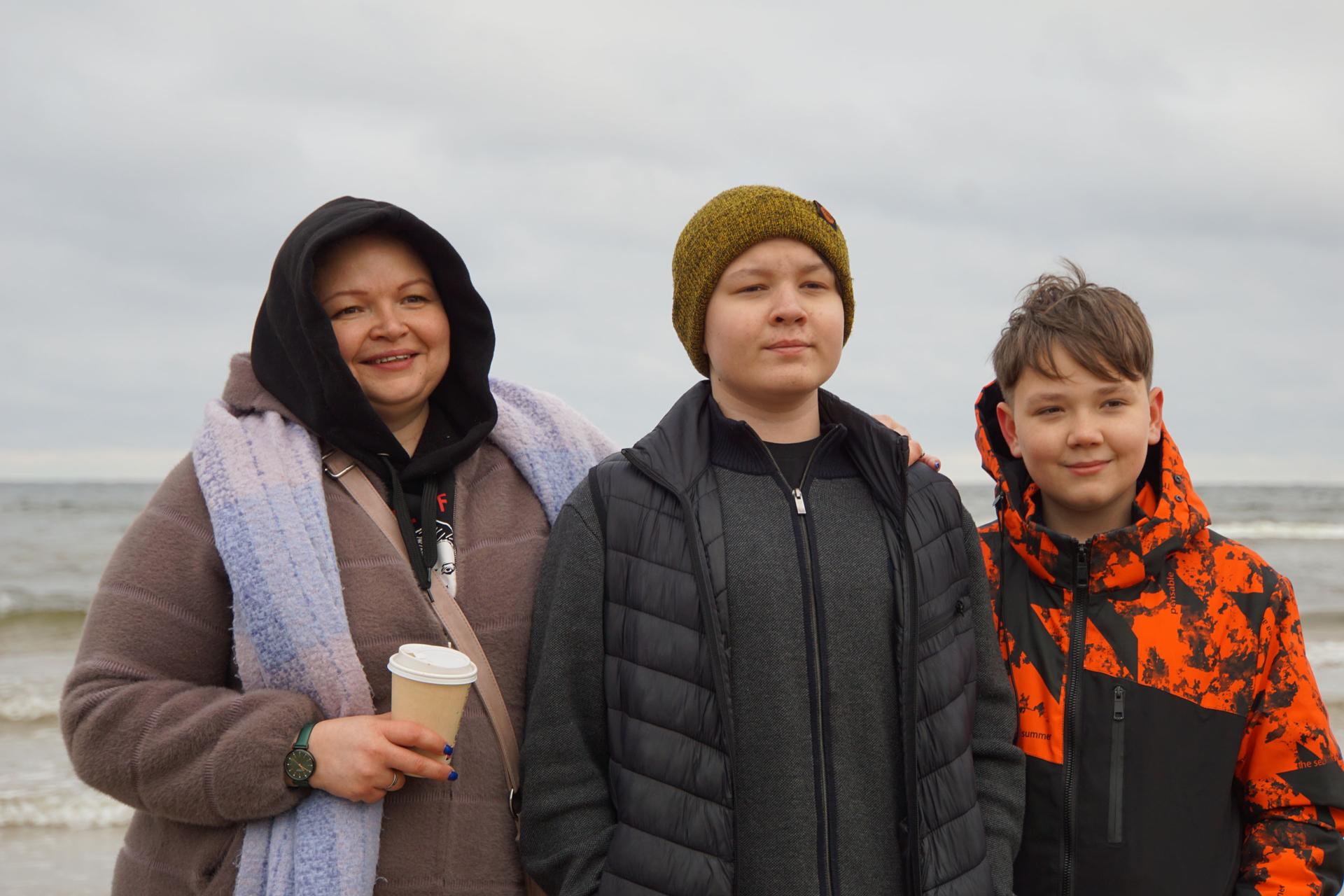
Back at the hotel where the families stay during the program, psychologist Inga Gedrima was cleaning up playdough after art therapy with the Ukrainian kids.
On their third and final session together, Gedrima said that three sessions is not much but it’s enough to make some progress.
She said her goal is to give each child tools that can help them understand their emotions — especially when they go back to Ukraine.
She also tries to build up their self-confidence.
After the first session, some participants told her that exploring their emotions is new to them.
Danya said the kids back home don’t want to talk about the war much — “Because we don’t know anything of that, and anyway, we cannot change anything. We’re kids, and we just think about [winning,] and what we [are] going to do when the war ends.”
In Latvia, Danya said he has been able to sleep better and he made new friends.
He also said Gedrima inspired him.
“She told me that I have psychology skills, and I really think about it a lot. And I think that when I complete my college in Ukrain,e I will go learn about psychology,” Danya said.
The World is an independent newsroom. We’re not funded by billionaires; instead, we rely on readers and listeners like you. As a listener, you’re a crucial part of our team and our global community. Your support is vital to running our nonprofit newsroom, and we can’t do this work without you. Will you support The World with a gift today? Donations made between now and Dec. 31 will be matched 1:1. Thanks for investing in our work!
